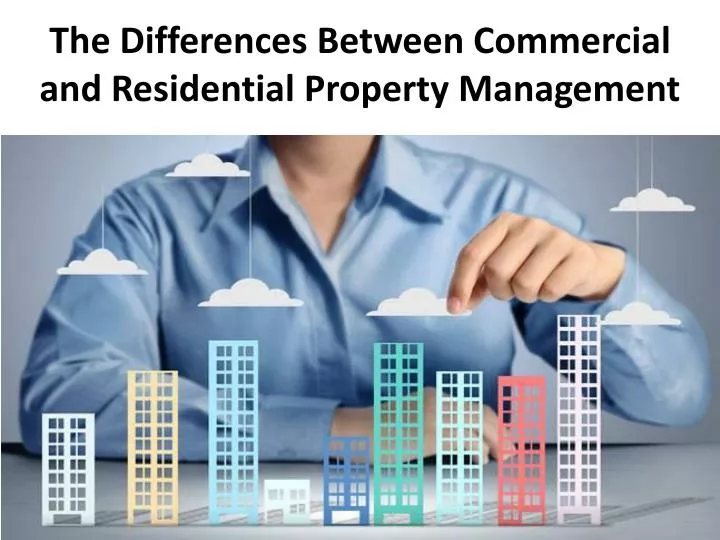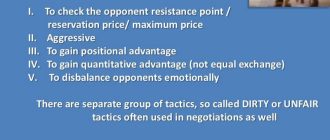
Navigating Business Claims: Differences Between Residential and Commercial Adjusting.
When it comes to filing insurance claims, one of the key differences that needs to be understood is between commercial and residential adjusting. While both involve the assessment and settlement of claims, there are distinct variations that can greatly impact the outcome.
Commercial adjusting relates to claims filed by businesses or commercial entities. These can include property damage, liability claims, or even business interruption claims. The complexity of commercial adjusting usually stems from the larger scale of the claims and the various parties involved.
Residential adjusting, on the other hand, focuses on claims made by individuals for damage to their homes or personal property. This can include claims related to fire, water damage, theft, or natural disasters. Residential adjusting generally involves a more straightforward process due to the smaller scale and limited parties involved.
Understanding the differences between these two areas is crucial for both insurance professionals and policyholders alike. By navigating and comprehending the complexities of commercial and residential claims, one can better advocate for their rights and ensure a fair outcome.
In summary, commercial adjusting deals with claims from businesses, while residential adjusting deals with claims from individuals and their homes. The distinctions between the two areas are crucial for a successful claims process.
The Importance of Understanding Business Claims
When it comes to navigating and adjusting claims, there are significant differences between residential and commercial properties. Understanding these distinctions is essential for anyone involved in the business claims process.
Business claims require a deeper level of expertise and knowledge compared to residential claims. Commercial properties often have more complex structures and higher values at stake. This means that the adjusting process for business claims can be more intricate and time-consuming.
One of the key differences between residential and commercial adjusting is the scope of the claim. Residential claims typically involve a single home or dwelling, while commercial claims can involve an entire office building, retail complex, or industrial facility. The scale of the claim can significantly impact the adjusting process and the resources required.
Additionally, the types of damages and losses experienced in commercial properties can vary greatly compared to residential properties. Business claims may involve issues such as inventory loss, business interruption, equipment damage, and liability claims. Adjusters need to have a comprehensive understanding of the specific risks and challenges associated with commercial properties to accurately assess and adjust these claims.
Properly navigating business claims requires a specialized skillset and experience. Adjusters need to have a deep understanding of the unique factors involved in commercial claims, including insurance policies, coverage limits, and legal considerations.
By understanding the distinctions between residential and commercial adjusting, insurance professionals, adjusters, and policyholders can ensure a smoother and more effective claims process. It allows for better communication, accurate assessments, and fair resolutions for all parties involved.
In conclusion, business claims require a higher level of expertise and understanding compared to residential claims. The differences in scope, damages, and processes make it crucial for anyone involved in the claims process to have specialized knowledge in commercial adjusting. By leveraging this expertise, insurance professionals can provide their clients with the best possible outcomes and ensure that their business claims are resolved accurately and efficiently.
The Role of Adjusters
Adjusters play a vital role in navigating the complex world of insurance claims. Whether it is a residential or commercial claim, their job is to assess the damage, determine the policy coverage, and negotiate a fair settlement with the insured.
When it comes to residential claims, adjusters must be well-versed in the specific needs and requirements of homeowners. They need to understand the differences between residential and commercial adjusting, as the two can vary significantly. Residential claims often involve personal property damage, such as water damage or fire damage, and require a compassionate approach to handle the emotional toll it can take on homeowners.
On the other hand, business claims require adjusters to have a broader understanding of the commercial industry. They need to be familiar with various types of businesses, such as retail stores, restaurants, or office spaces, and understand the intricacies of each. Business claims can involve significant financial loss, interruption of operations, and liability issues, making it essential for adjusters to possess strong analytical and negotiation skills.
Regardless of whether it is a residential or commercial claim, adjusters need to thoroughly investigate the loss to accurately determine the cause and extent of the damage. They must gather evidence, interview witnesses, and collaborate with experts if needed to gather all the necessary information. This information is crucial in negotiating a fair settlement for the insured.
Furthermore, adjusters act as the liaison between the insured and the insurance company. They must effectively communicate the details of the claim and advocate for the insured’s best interests. They handle the paperwork, negotiate with contractors or service providers, and ensure that the claim is processed in a timely and efficient manner.
In summary, adjusters play a critical role in navigating business claims by understanding the distinctions between residential and commercial adjusting. Their expertise in assessing damage, determining policy coverage, and negotiating settlements is essential in providing a fair resolution for both homeowners and businesses.
Residential vs Commercial Adjusting
When it comes to navigating business claims, it’s important to understand the distinctions between residential and commercial adjusting. While both involve the process of assessing and determining the value of property damage, there are significant differences that need to be considered.
Commercial Adjusting: Commercial adjusting focuses on insurance claims related to businesses and commercial properties. It involves assessing the damage on a larger scale, taking into account factors such as business interruption, lost revenue, and potential liability issues. Commercial adjusting requires a thorough understanding of business operations and the ability to quantify the financial impact of the damage on the overall business.
Residential Adjusting: Residential adjusting, on the other hand, deals with insurance claims for residential properties. This includes homes, apartments, and condos. The emphasis is on assessing the damage and determining the cost of repairs or replacement. Residential adjusting requires understanding the value of personal property, as well as the emotional impact on the homeowners who may have lost their cherished possessions.
Both commercial and residential adjusting involve the process of negotiations with insurance companies, documentation of the damage, and determining the appropriate value for the claim. However, the differences in scope and focus make each type of adjusting unique.
Understanding these distinctions is crucial for businesses and individuals seeking assistance with their insurance claims. Whether it’s a commercial property or a residential home, having an experienced adjusting service that specializes in the specific needs of the property can make all the difference in successfully navigating the claims process and maximizing the value of the claim.
Evaluating Property Damage
When it comes to evaluating property damage, there are significant differences between commercial and residential claims. Commercial property damage claims can be more complex and costly compared to residential claims.
Commercial property damage claims often involve larger scale properties and businesses that have more intricate systems and assets. These claims require expertise and experience in assessing damage to specialized equipment, machinery, and infrastructure. Adjusters need to be knowledgeable about the unique characteristics and requirements of different types of businesses in order to accurately evaluate the extent of the damage and determine the appropriate compensation.
On the other hand, residential property damage claims typically involve smaller-scale properties, such as houses, apartments, or condominiums. The damages are usually confined to the living spaces and personal belongings of the occupants. While the severity and extent of the damage may vary, residential claims are generally less complex and easier to evaluate compared to commercial claims.
Adjusting residential claims requires understanding the different materials and construction methods commonly used in residential properties. This knowledge helps assess the damage accurately and recommend appropriate repairs or replacements.
In summary, evaluating property damage in commercial and residential claims requires different skill sets and knowledge. Commercial claims involve larger scale properties and more complex systems, while residential claims usually focus on smaller-scale properties and personal belongings. Adjusters specializing in business claims need to possess expertise in evaluating damage to specialized equipment, machinery, and infrastructure, while adjusters working with residential claims must be well-versed in residential construction materials and methods.
Different Insurance Policies
When it comes to navigating business claims, understanding the distinctions between residential and commercial adjusting is crucial. One key aspect to consider is the type of insurance policies that apply to each situation.
Residential Insurance Policies:
Residential insurance policies are designed to protect homeowners and renters against property damage or loss. These policies typically cover dwellings, personal belongings, liability for accidents or injuries that occur on the property, and additional living expenses in case the home becomes uninhabitable.
When filing a residential insurance claim, the adjuster will evaluate the extent of the damage or loss and determine the appropriate coverage provided by the policy. This may include repairs, replacement of damaged or stolen items, temporary housing, or compensation for any medical or legal expenses arising from accidents or injuries.
Commercial Insurance Policies:
Commercial insurance policies, on the other hand, are specifically tailored for businesses and organizations. These policies protect against property damage, liability claims, and other risks that may arise in the course of operating a business.
Commercial insurance policies can be broad or specific, depending on the needs of the business. They may include coverage for buildings, equipment, inventory, business interruption, general or professional liability, and even cyber attacks or data breaches. The adjuster evaluating a commercial insurance claim will consider the specific coverage provided by the policy and assess the impact of the incident on the business.
It is important for businesses to carefully review and understand their commercial insurance policies to ensure they are adequately covered in the event of a claim. Having the appropriate coverage can help mitigate potential losses and ensure the swift recovery and continuation of operations.
In conclusion, different insurance policies apply to residential and commercial adjusting. Understanding the distinctions and coverage provided by these policies is essential for effectively navigating business claims and ensuring a fair settlement.
Coverage Limitations
In the world of insurance, there are important differences between business and residential claims. These differences can affect the coverage limitations that apply to each type of claim.
Business Claims:
When it comes to business claims, there are specific coverage limitations that may apply. These limitations can vary depending on the type and size of the business, as well as the specific insurance policy in place. It is crucial for business owners to understand these limitations to ensure proper coverage.
Commercial Adjusting:
Commercial adjusting involves handling claims related to commercial properties, such as office buildings, warehouses, and retail spaces. Adjusters who specialize in commercial adjusting have a thorough understanding of the unique challenges and complexities that may arise in these types of claims.
Residential Claims:
On the other hand, residential claims are related to damage or loss to homes, condos, or apartments. The coverage limitations for residential claims may differ from those of business claims due to the differences in property types and potential risks involved.
Understanding the Distinctions:
It is essential to understand the coverage limitations specific to each type of claim – business or residential. This understanding will enable insurance professionals to provide accurate assessments and fair settlements for claims, ensuring that policyholders receive the appropriate coverage and compensation.
It is important to consult with an experienced insurance adjuster who can navigate the complexities and differences between business and residential claims. Their expertise will help ensure that policyholders receive the maximum coverage within the limitations of their insurance policies.
Business Interruption Claims
When it comes to business interruption claims, there are some important differences between residential and commercial adjusting that insurers and adjusters need to be aware of. Navigating these distinctions is crucial in order to accurately assess and process claims.
Firstly, the nature of the claims themselves can vary greatly between residential and commercial properties. Residential claims typically involve damage to dwellings, while commercial claims may involve damage to physical structures as well as loss of income due to business interruption.
Another key difference lies in the complexity of the claims. Commercial claims often involve more intricate calculations and analysis due to the potential impact on a business’s profitability and financial standing. Residential claims, on the other hand, may be more straightforward and focused on the cost of repairs.
Additionally, the documentation requirements for business interruption claims are often more stringent compared to residential claims. Insurers will usually require detailed financial records and proof of loss of income or additional expenses incurred as a result of the interruption.
It is also important to consider the duration of the interruption in both types of claims. Residential claims typically involve shorter periods of displacement and interruption, while commercial claims can involve longer-term closures, resulting in greater financial loss.
Overall, understanding the differences between residential and commercial adjusting is essential when it comes to handling business interruption claims. By having a thorough knowledge of these distinctions, insurers and adjusters can ensure a smooth claims process and provide the necessary support to businesses during challenging times.
Dealing with Complex Claims
When it comes to managing claims in the business world, there are often more complexities to consider compared to residential claims. Navigating through these complexities requires a thorough understanding of the distinctions between residential and commercial adjusting.
In the realm of business claims, there are a variety of factors that can come into play. These factors can include the size and scope of the business, the specific industry it operates in, and the type of insurance coverage in place. All of these variables can greatly impact the claims process and require specific knowledge and expertise to navigate effectively.
One of the key differences between residential and commercial claims is the level of complexity involved. Business claims often involve larger sums of money, higher stakes, and a more intricate web of relationships and dependencies. These complexities can make the claims process more challenging and require a meticulous approach to ensure that all parties involved are properly accounted for.
Another aspect that sets business claims apart is the need for specialized adjusting. Unlike residential adjusting, which focuses primarily on the needs and concerns of individual homeowners, commercial adjusting takes into account the unique needs and considerations of businesses. This can include addressing business interruption, loss of revenue, and potential liability issues that may arise from the claim.
Successfully dealing with complex claims requires a blend of technical knowledge, analytical skills, and effective communication. Adjusters must be able to assess the full extent of the damages, evaluate the financial impact on the business, and negotiate with various stakeholders to reach a fair and equitable resolution.
Conclusion
Understanding the distinctions between residential and commercial adjusting is essential when it comes to navigating business claims. The complexities involved in managing business claims require specialized knowledge and expertise to ensure a smooth and efficient resolution. By effectively dealing with complex claims, businesses can protect their interests and move forward with confidence.
Understanding Loss Valuation
When it comes to handling business claims, understanding the differences in loss valuation between residential and commercial adjusting is crucial. The valuation of losses plays a vital role in determining the compensation that a business may receive for damages incurred.
In commercial adjusting, the process of loss valuation is often more complex than in residential claims. Commercial properties usually involve higher values, intricate business operations, and a variety of insurance policies to consider. As a result, the valuation of losses in commercial claims requires a more comprehensive and meticulous approach.

One key difference in loss valuation between residential and commercial adjusting lies in the method used to assess property damage. In residential claims, the focus is primarily on the physical damage caused by an incident, such as a fire or a natural disaster. The valuation typically involves estimating the cost of repairs or replacement for the affected residential property.
On the other hand, commercial claims not only address the physical damage but also consider the impact on the business’s operations and financials. Loss valuation in commercial adjusting encompasses the evaluation of business interruption, extra expenses incurred, and potential revenue losses. This multifaceted approach aims to provide a comprehensive settlement that adequately compensates a business for its losses.
Navigating the complexities of loss valuation in commercial claims requires expertise in understanding the intricate details of a business’s operations, financials, and insurance policies. Commercial adjusters play a crucial role in assessing the actual value of losses and negotiating with insurance carriers to ensure fair compensation for the business.
In conclusion, understanding the nuances of loss valuation is essential when handling commercial claims. The differences in loss valuation between residential and commercial adjusting highlight the need for specialized knowledge and expertise in navigating business claims effectively.
| Focuses on physical damage | Considers impact on business operations |
| Estimates property repair or replacement costs | Evaluates business interruption, extra expenses, and revenue losses |
| Less complex compared to commercial adjusting | Requires a comprehensive and meticulous approach |
The Importance of Documentation
When it comes to navigating commercial and residential claims, one crucial factor that can make or break the process is documentation. Proper documentation is essential for both types of claims, but there are some differences between them that businesses need to understand and address.
In a residential claim, insurance adjusters typically deal with individual homeowners who are seeking compensation for damages to their property. The documentation required for residential claims usually includes photographs, repair estimates, and other evidence that proves the extent of the damage and the value of the property.
On the other hand, commercial claims involve businesses that may have multiple locations, assets, and livelihoods at stake. The documentation for commercial claims needs to account for these differences by providing detailed inventories, financial records, and any other relevant information that shows the impact of the damage on the business operations.
Businesses must also be prepared to navigate the complexities of commercial insurance policies, which often include additional coverage options and specific requirements for documentation. Failure to comply with these requirements can result in delays or even denial of the claim, potentially leading to significant financial loss for the business.
By understanding the differences between commercial and residential claims, businesses can better navigate the complexities of the insurance process and ensure they provide the necessary documentation to support their claims. Effective documentation not only increases the likelihood of a successful claim settlement but also helps businesses recover more quickly from the losses they’ve sustained.
Communicating with Insureds
When it comes to navigating claims, effective communication with insureds is essential, whether you are dealing with residential or commercial adjusting.
Communicating with insureds during the claims process helps build trust, ensures that they are informed about the progress of their claim, and provides an opportunity to address any concerns or questions they may have.
Here are some key points to remember when communicating with insureds:
| Be proactive: | Reach out to insureds promptly after a claim is filed to acknowledge receipt and let them know what to expect. Continue to provide regular updates throughout the claims process. |
| Listen actively: | Take the time to listen to insureds’ concerns and questions. Show empathy and understanding, and address their needs in a timely manner. |
| Explain clearly: | Use clear and concise language when explaining the claims process, the steps involved, and any documentation or information required from the insured. |
| Provide guidance: | Offer guidance and support to insureds, including information on what to expect, how to prepare for inspections or evaluations, and any additional steps they may need to take. |
| Manage expectations: | Be transparent and honest about the timeframe, potential outcomes, and limitations of the claims process. Setting realistic expectations can help minimize frustration and miscommunication. |
| Offer assistance: | Provide insureds with information on available resources, such as contractors, restoration services, or legal counsel, if needed. Offer guidance on how they can navigate the claims process more effectively. |
| Follow up: | Once the claim is resolved, follow up with insureds to ensure their satisfaction and address any outstanding concerns. This demonstrates your commitment to their needs and builds a positive reputation for your business. |
Remember, effective communication is key to navigating business claims successfully, regardless of the differences between residential and commercial adjusting. By communicating with insureds in a clear, empathetic, and proactive manner, you can build trust, ensure their understanding, and provide the support they need throughout the claims process.
undefined
What is the difference between residential and commercial adjusting?
The main difference between residential and commercial adjusting is the type of property being covered. Residential adjusting deals with claims related to homes and apartments, while commercial adjusting focuses on claims for businesses and commercial properties.
Can a residential adjuster handle commercial claims?
While there may be some overlap in skills and knowledge, it is generally recommended to have a specialized commercial adjuster for handling commercial claims. Commercial claims can be more complex and involve larger sums of money, so having someone with expertise in that area is beneficial.
What are the challenges of navigating business claims?
Navigating business claims can be challenging due to the complexity of commercial policies, the potential for larger losses, and the involvement of multiple stakeholders. Understanding the unique requirements and coverages of commercial policies, as well as effectively communicating with business owners and other relevant parties, are key challenges in this process.
Do residential adjusters need additional training to handle commercial claims?
Yes, residential adjusters typically need additional training and certification to handle commercial claims. Commercial adjusting requires a deeper understanding of commercial policies, business interruption coverage, and other specialized knowledge related to commercial claims. Many adjusters pursue additional training and certifications to expand their skill set in this area.






